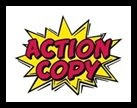Ordinary consumers with no conflicts of interest supposedly author reviews, but sometimes companies plant glowing fake reviews among legitimate ones. It can be hard to spot the fakes, especially when casually browsing. But certain characteristics can help identify them, and writing styles offer a number of clues:
- Too effusive – "This coffee maker is the best thing ever invented! I would buy it again and again, and I recommend it to everyone alive!"
- Too specific – "Acme's aerodynamic coffee drip mechanism creates the ideal brewing environment for beans prepared with Acme's 345G coffee grinding system."
- Horrible, irrelevant writing (so five stars can be given) – "i luv coffee & this coffee maker makes the best coffeee in da wurld LOL!!!!"
- Marketing-speak – "This coffee maker is GENIUS! No more moving, disconnecting cables, and spilling out water and coffee. I love waking up in the morning and finding a perfectly hot cup of coffee thanks to the programmable timer. I RECOMMEND THIS LOVELY PRODUCT!"
With care, the writing could be finessed to avoid detection. On the other the hand, companies could redirect efforts into running marketing campaigns that don't involve deception.

.gif)





This is the best issue of The Awkward Adverb yet! Witty and to the point, I am heartily recommending this to everyone I know! I could read it over and over again, 100 times, and so I have! 5 stars!!!!
ReplyDeleteI work in SEO (Search Engine Optimization) and run across this all the time. Aside from the content of the review, there are other ways to spot the fakes. One example is the brand new reviewer user name with no other reviews under his/her account. Another is when several 5-star reviews suddenly show up during the same week or day. Yelp has gotten good at filtering these fakes out, but I see plenty of it on Citysearch and Google Places.
ReplyDelete